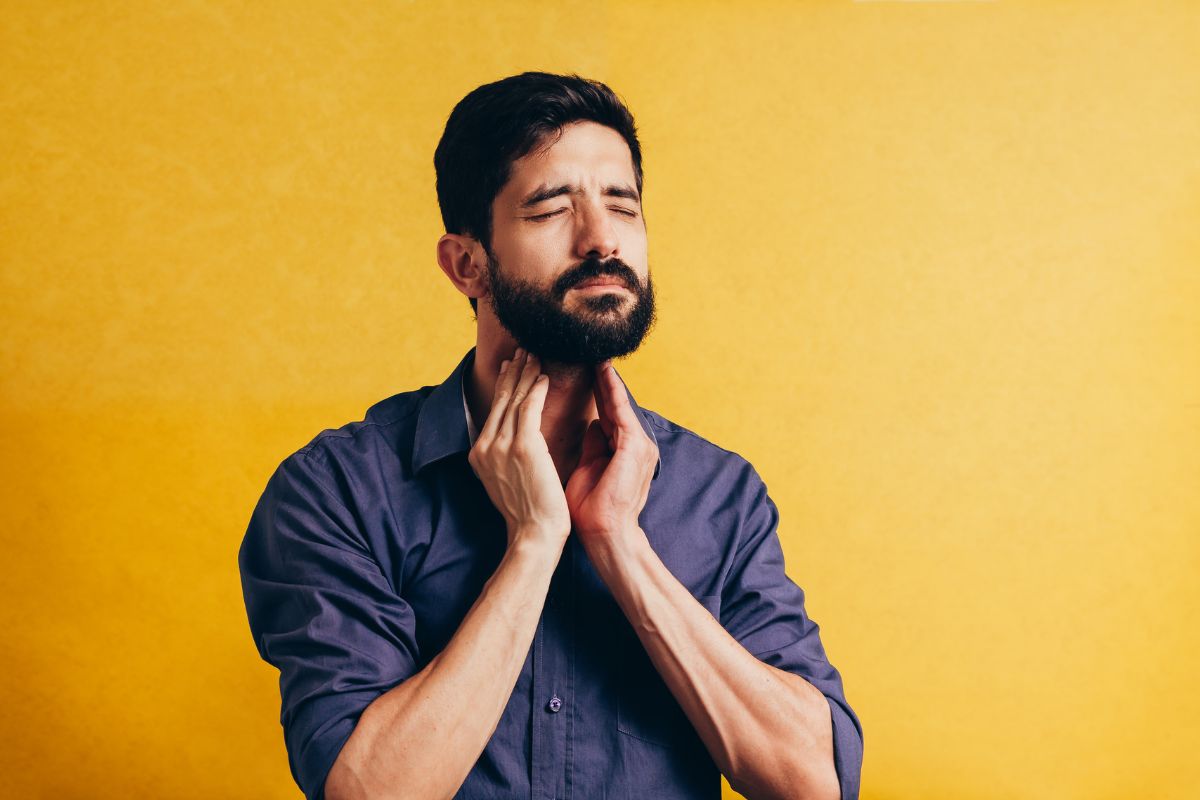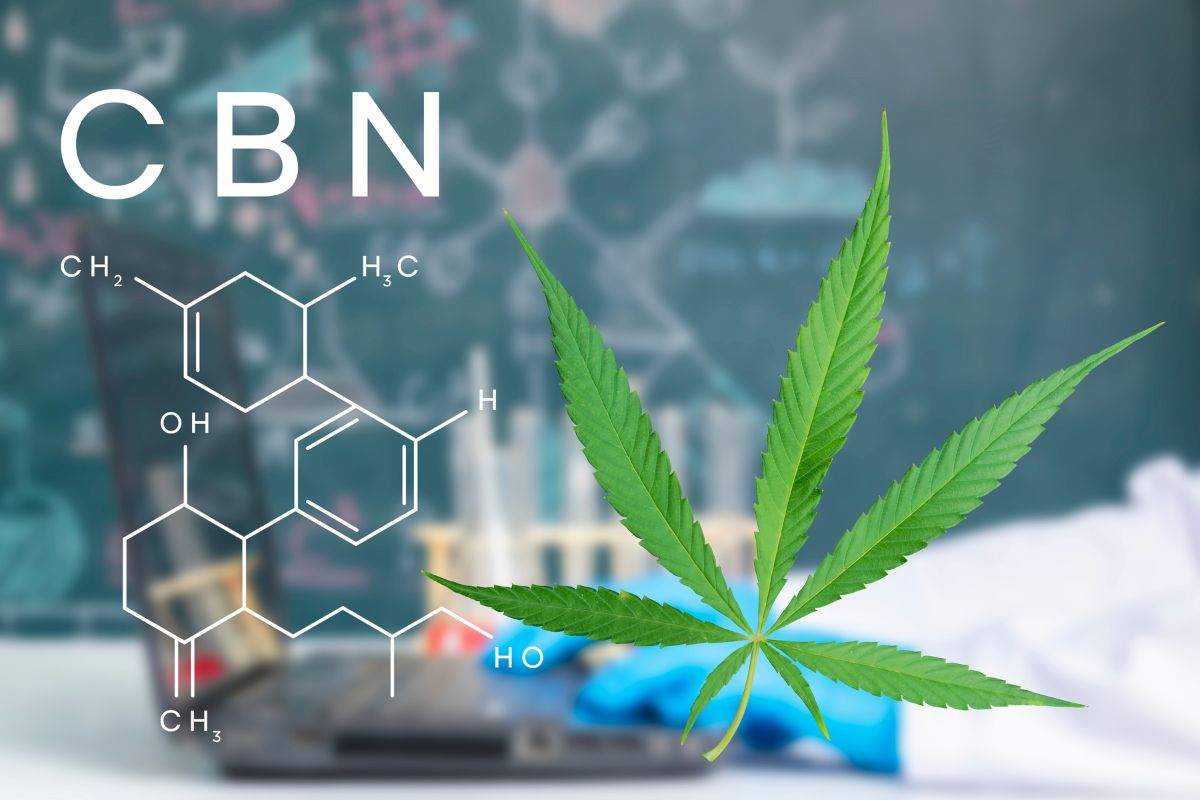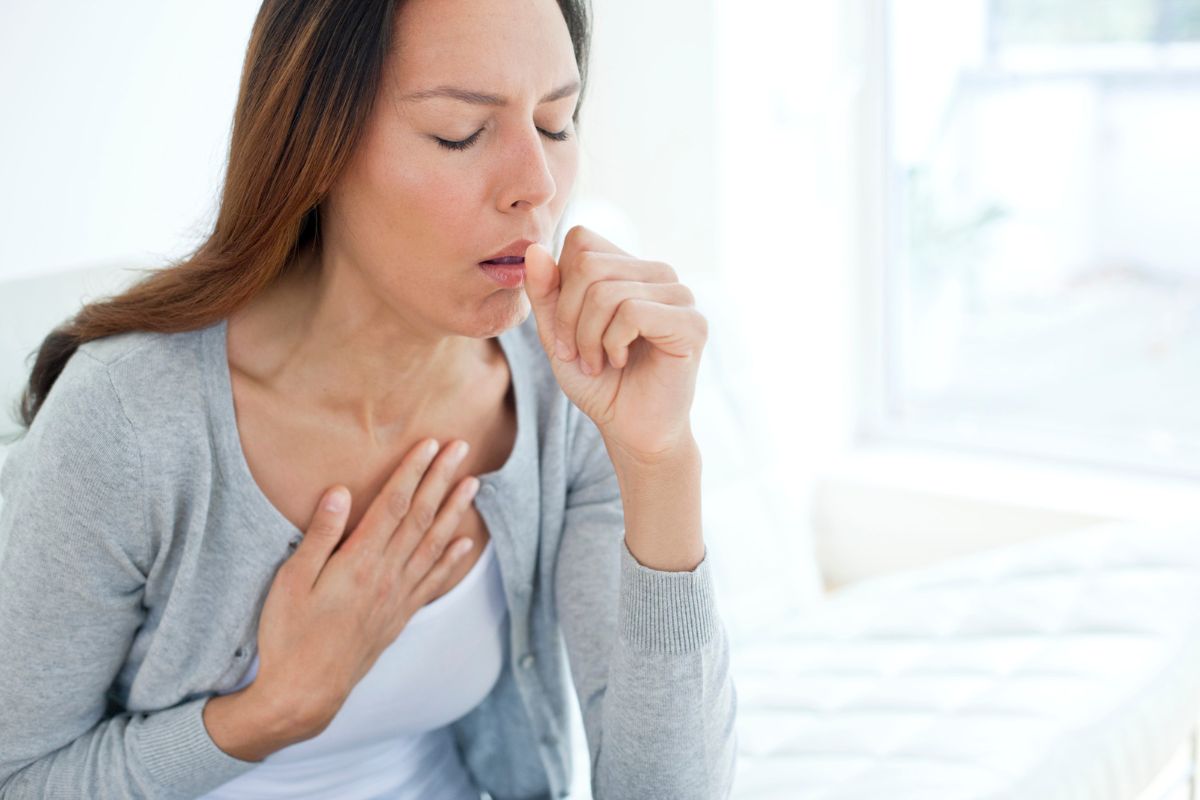Yes, some people experience chest pain due to smoking, and smoking can also lead to cancer, heart disease, and respiratory disease that can also cause chest pain.
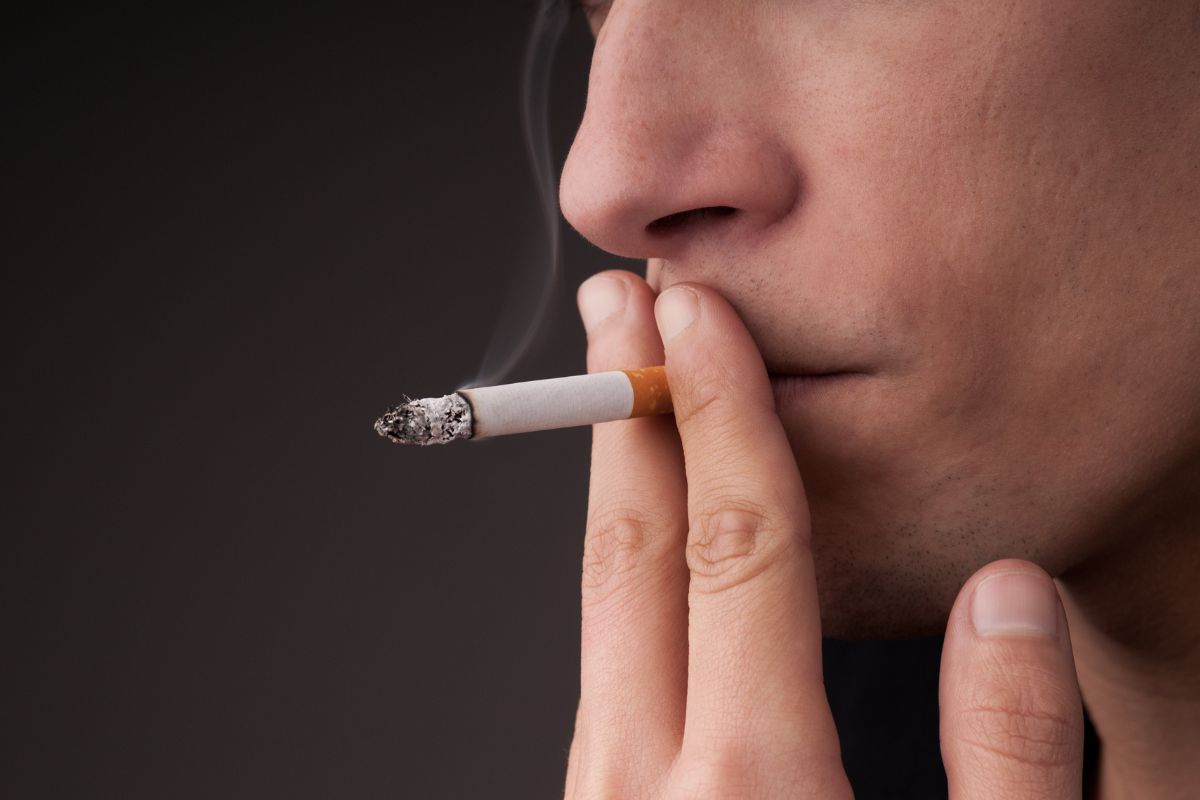
For example, coronary heart disease can narrow blood vessels and put more pressure on the heart, which results in chest pain.
Smoking also agitates the lungs and damages airways, which can lead to other chest-pain related conditions such as chronic bronchitis, COPD (Chronic Obstructive Pulmonary Disease), emphysema, lung cancer, and asthma flare-ups.
Smoking can also make blood clots likelier in all parts of the body. According to the ALA (American Lung Association), if a clot forms in veins, then your bloodstream can carry that clot to the lungs and make it painful when you inhale.
Below, we’ll take a look at when you should seek medical advice for chest pain, and why chest pain might persist even if you quit smoking. But first, let’s take a deeper look at why smoking causes chest pain in the first place (see also “Does Smoking Weed Cause Acne?“).
Why Does Smoking Lead To Chest Pain?
Smoking causes chest pain due to the impact smoking has on the lungs on the heart, irritation or inflammation on these organs.
Heart Disease
A 2015 study by Pubmed.gov looked at heart attack symptoms that can occur when there is a build-up of plaque in the arteries.
This plaque may prevent blood from flowing to the heart and reduce the amount of oxygen your heart has. This lack of oxygen can seriously hurt your heart and lead to chest pain that travels from your left arm to the neck.
You may also experience an atypical heartbeat, anxiety, depression, fatigue, nausea, shortness of breath, stress, sweating, and vomiting.
Heart disease can also increase your blood pressure, which can then lead to chest pain. The study states that heart attacks can be prevented by changing your lifestyle and diet.
These changes to your lifestyle can be cutting down on smoking and alcohol, monitoring your blood pressure every week, exercising daily, and maintaining or managing a healthy body weight.
COPD
There are many harmful chemicals in cigarette smoke, and some of these chemicals can have a direct negative impact on your lungs and lead to COPD.
These chemicals can destroy the alveoli (small sacs in the lungs), narrow your airways, and weaken the lungs overall.
COPD can cause chest pain or chest tightness, but other symptoms of COPD include a chronic cough, recurrent chest infections which can worsen chest pain, shortness of breath, and wheezing.
Asthma
Smoking can trigger asthma, and when a person suffers an asthma attack, the lining of their airways swells and makes breathing hard.
These narrow airways prevent air flow in and out of the lungs. Furthermore, the cells in the airways create excess mucus which exacerbates breaking difficulties.
Symptoms of asthma include soughing, chest pain, tightness in the chest, shortness of breath, and wheezing.
Lung Cancer
Cigarette smoking is the number one cause of lung cancer, according to the CVD. Around 80-90% of lung cancer deaths are linked to smoking in the United States.
One of the ways cigarette smoke leads to cancer is direct damage to DNA in lung cells.
As well as chest pain, other symptoms of lung cancer include coughing, fatigue, weight loss, and wheezing.
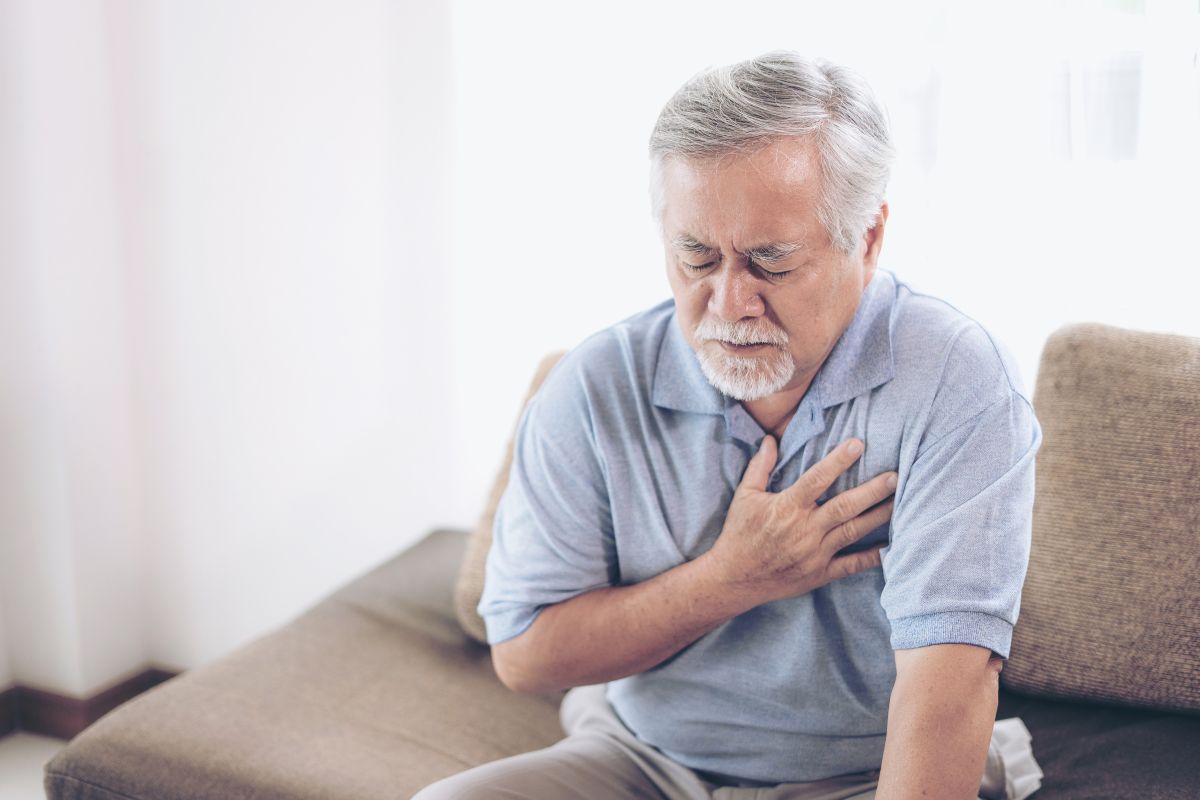
What Does Chest Pain Feel Like?
Chest pain might feel different depending on what the cause of the pain is, but let’s take a look at different types of chest pain for different conditions.
Heart Disease
Those who suffer with pericarditis (which is a kind of heart disease) can experience a sharp, sudden, stabbing pain in their chest that becomes worse when lying down or breathing deeply.
If someone is suffering a heart attack or angina, they might feel a different kind of chest pain. Both of these conditions can cause dull, heavy, or tight chest pain.
Smoking damages lung tissue, meaning that blood from the lungs contains significantly lower amounts of oxygen.
To compensate for this reduced lung tissue, the heart is under a lot more pressure and uses more oxygen to get more blood into whatever tissue remains in the lungs.
Reduced blood oxygen to the heart muscles can cause angina. If someone is suffering a heart attack, no oxygen can get to the heart at all. While angina is temporary, this doesn’t mean it should go ignored.
Respiratory Disease
Tightness in the chest associated with COPD can make it hard for a person to take deep breaths or breathe at all. The coughing associated with bronchitis can also cause chest pain, which can vary from person to person.
Still, chest pain isn’t always associated with a lung or heart condition. For example, panic attacks can also cause chest pain. Talk to your doctor to get to the bottom of any chest pain.
When Should You Go To The Doctor For Chest Pain?
Even if you have chest pain that comes and goes, it’s still wise to visit your doctor so you can check if there are any serious underlying issues causing the pain.
If your chest pain fades quickly but you’re still concerned, contact your doctor so you can put your mind at ease.
Chest pain can also be caused by a heart attack. If you have sudden chest pain or persistent chest pain, then you or someone else that is with you should call 911 immediately.
Why Does My Chest Hurt After I’ve Quit Smoking?
Even if you quit smoking, you may still feel chest pain or chest tightness a few weeks after you quit. This might be because of muscle tension caused by nicotine cravings, or muscle soreness from coughing.
A tight chest may also be caused by the cilia (the cleaning system of the bronchi) strengthening and beginning to get rid of the mucus that has been building up in the lungs. To soothe these pains, take slow, deep breaths.
Final Thoughts
Smoking is responsible for a lot of health conditions, such as lung and heart conditions that have chest pain as a symptom.
Or, chest pain can simply occur because of the agitation that smoking causes. Chest pain related to smoking can also vary from person to person and the underlying cause of the pain.
If you experience sudden chest pain that spreads to your arms, back, jaw, or neck, you need medical attention immediately, as this could be a heart attack.
- 5 Best Weed T-Shirts For Women - June 26, 2023
- What To Wear To A Cannabis Café: 10 Awesome Options - June 26, 2023
- What Is Stoner Girl Clothing? All You Need To Know - June 26, 2023





